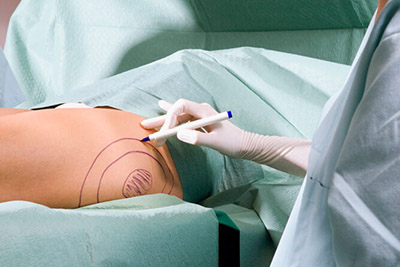Liposuction In ISTANBUL,TURKEY
What is Liposuction?
Liposuction is a procedure that removes excess fat deposits by vacuuming and refines your body lines, resulting in a more aesthetic appearance.

Liposuction can remove fat from many areas such as the abdomen, hips, thighs, neck, and face.
Who are the best candidates for liposuction? Am I suitable for liposuction?
The greatest candidates for surgical liposuction are individuals who have stubborn regions of fat that cannot be lowered with diet or exercise. Liposuction is not a weight loss procedure, and you should be as near to your ideal weight as possible before having the procedure. If you are unsure, please contact us to explore your treatment options.
Choosing whether or not liposuction is right for you Some people should consider getting liposuction, while others should avoid it. Consult your doctor to determine whether liposuction is a viable option for you. Talk to them about your concerns.
Individuals that are good candidates for liposuction are:
- Having good skin elasticity
- Having strong muscle strength
- Having excess fat that will not go away with diet or exercise
- Being in good physical shape and general health
- Liposuction should be avoided at all costs.
If you:
- Are smoker
- Have a weakened immune system
- Have sagging skin, are overweight, or have a history of diabetes, cardiovascular disease, deep vein thrombosis (DVT), or seizures
Please make a consultation with us to find out if you are a candidate for liposuction.
How should I prepare for liposuction? What can I do to prepare for lipo?
Before liposuction surgery, both the patient and the surgeon must go through certain procedures. These processes are detailed below.
If the patient is overweight, it is urged during the interview that he lose weight first.
The doctor informs the patient.
The patient's preferences are discovered.
Surgeons learn about previous operations.
You should cease using herbal supplements and herbal teas because they may thin your blood.
A period of fasting should be observed prior to the surgery.
It is advised to cease drinking and smoking 15 days before the event.
The patient's menstrual cycle should be mentioned to the doctor.
If the patient is overweight, the doctor advises them to lose weight. The patient attempts to lose weight by exercising and making dietary adjustments. This condition emphasises the importance of constant local lubrication. There is no need to lose weight if there is a local lubricant in the body that can be eradicated by liposuction rather than a general lubricant.
The doctor decides whether or not liposuction will be combined with other forms of cosmetic therapy (such as tummy tuck).
Drug usage is learned behaviour. The doctor urges the patient to avoid taking any potentially harmful medications before to surgery or while under anaesthesia. Bleeding occurs during surgery. As a result, blood thinners and anti-bleeding drugs should be discontinued a few days before surgery (such as aspirin).
The patient is informed that they will have to wait for an appearance that meets their expectations.
The patient should be informed right away that the anticipated benefits of liposuction surgery will not be visible for a few days. Some patients are dissatisfied in this regard. Before and after (or before and after) photographs that are uploaded online must go through the recovery process.
Food consumption is ceased eight hours before surgery to reduce risks (such as stomach contents entering the respiratory system) during the procedure.
Both smoking and drinking weaken the immune system, causing wound healing to take longer and increasing the chance of infection. Drinking should be avoided for at least 15 days before the surgery since it limits the amount of oxygen in the blood.
Even though there would be no visible side effects prior to liposuction, women should inform the doctor that they are currently on their monthly cycle.
How is Liposuction Performed?
Local or general anesthesia can be applied depending on where liposuction will be applied. Liposuction is performed with small inconspicuous incisions.
Diluted local anesthetic is used first to reduce bleeding and trauma. Then, a hollow cannula is inserted from the cut and moved back and forth to loosen and dislodge the fat tissue in that area. The displaced fatty tissue is absorbed from the body with the help of an aspirator or syringe.
How Long Does It Take to Heal After Liposuction?
After the liposuction procedure, the treatment areas are covered with a compression garment or elastic bandages. These help control swelling and tighten the skin according to your new body contours. Small temporary drains may be placed in existing incisions under the skin to remove excess blood or fluid.
As the swelling that occurs after liposuction decreases, the new form of your body will appear more clearly. As the age progresses, fat loss will continue in the body, and the firmness obtained after liposuction may decrease over time.
Is liposuction risky? Is there a risk of fat embolism after the procedure?
Liposuction is the world's most widely used aesthetic method, according to data from the International Society of Aesthetic Plastic Surgery (ISAPS). The risk rate in the liposuction procedure, which an experienced plastic surgeon will apply to a healthy person without chronic disease, is very low.
